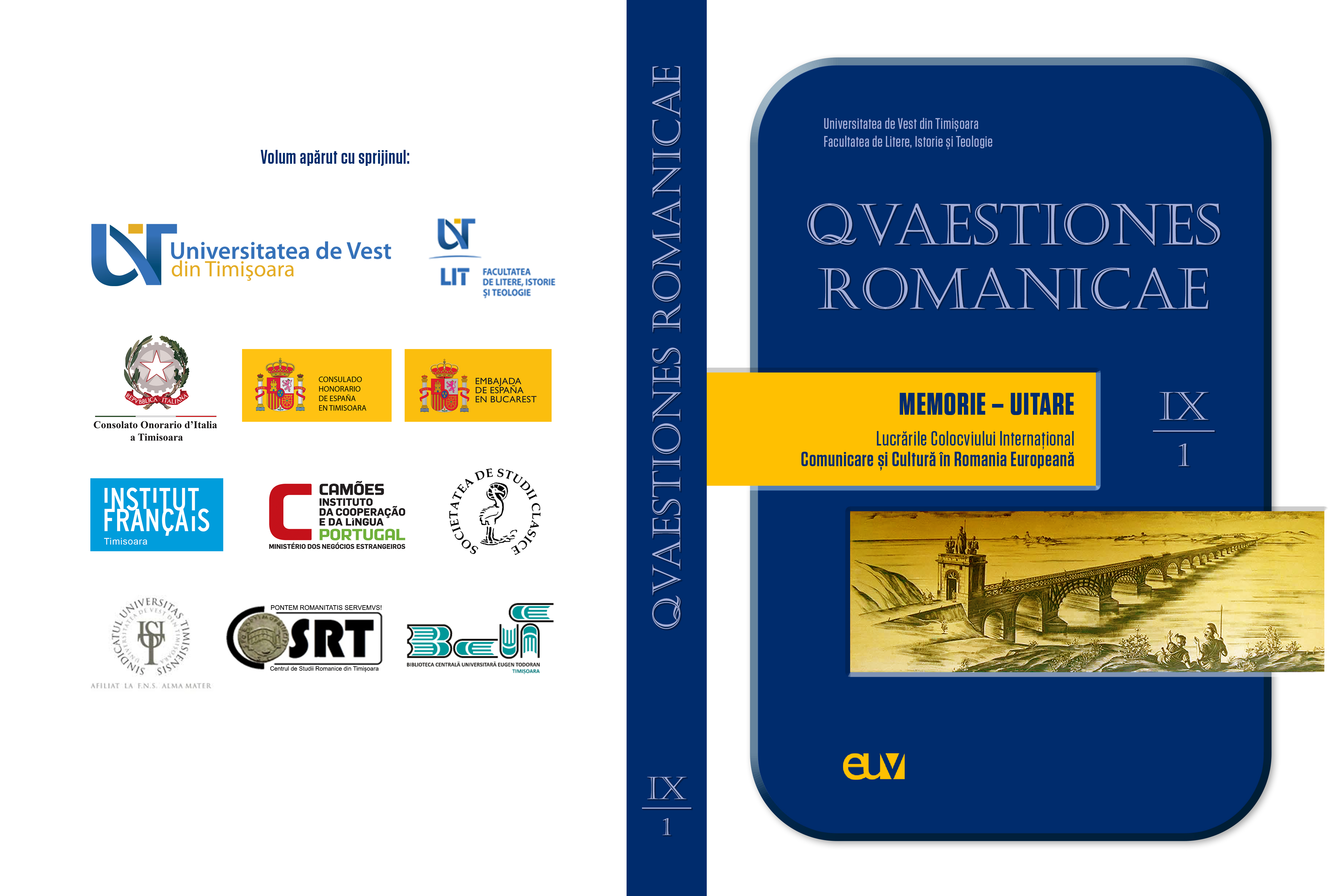Aspecte ale uitării (oblivio) în limba latină
Aspects of Oblivion (oblivio) in Latin
Author(s): Theodor GeorgescuSubject(s): Applied Linguistics, Lexis, Semantics, Historical Linguistics, Comparative Linguistics, Descriptive linguistics, Philology, Stylistics
Published by: Universitatea de Vest din Timişoara
Keywords: oblivion; lethe; lethargia-sleepiness; amnestia-amnesty;
Summary/Abstract: In the literature of Classical Antiquity, the oblivion theme appears from the first Homeric texts. Odysseus’ companions, who arrived in the land of the Lotus Eaters, forget their homeland and duties after eating the lotus offered by the natives. Only the energetic action of Odysseus saves them from the dangers of oblivion. In Latin, the notion of oblivion is expressed especially by the subst. oblivio, which, however, renders in Latin literature, in a single word, notions which in the Greek language were expressed by different terms. Oblivio, in the broadest sense, is the equivalent of gr. λήθη and the antonym of mindfulness (lat. memoria). It is mostly reprehensible, because it is a form of betrayal of the past. But it can sometimes be a form of salvation (Publil. Sent. I, 21 iniuriarum remedium est obliuio). But forgetting a thing can sometimes be only a momentary darkening of the mind, which in Greek was expressed by μετεωρία "distraction, confusion" or ἀβλεψία "blindness, inability to know". For doctors, even the state of sleepiness was also expressed by oblivio and rendering gr. ληθαργία. The voluntary erasure of unpleasant memories and the forgiveness of what happened was also a form of oblivio and is equivalent to gr. ἀμνηστία "oblivion", hence "forgiveness, pardon", and, in the field of law, "amnesty". It can be as well a form of conviction to be forgotten by posterity, indicating that a person is to be excluded from official accounts (damnatio memoriae "condemnation of memory"), practiced especially in the imperial period. The analysis of the contexts in which oblivio is attested in Latin authors shows different meanings that we can better understand by reference to the Greek language.
Journal: Quaestiones Romanicae
- Issue Year: IX/2021
- Issue No: 1
- Page Range: 100-106
- Page Count: 7
- Language: Romanian

